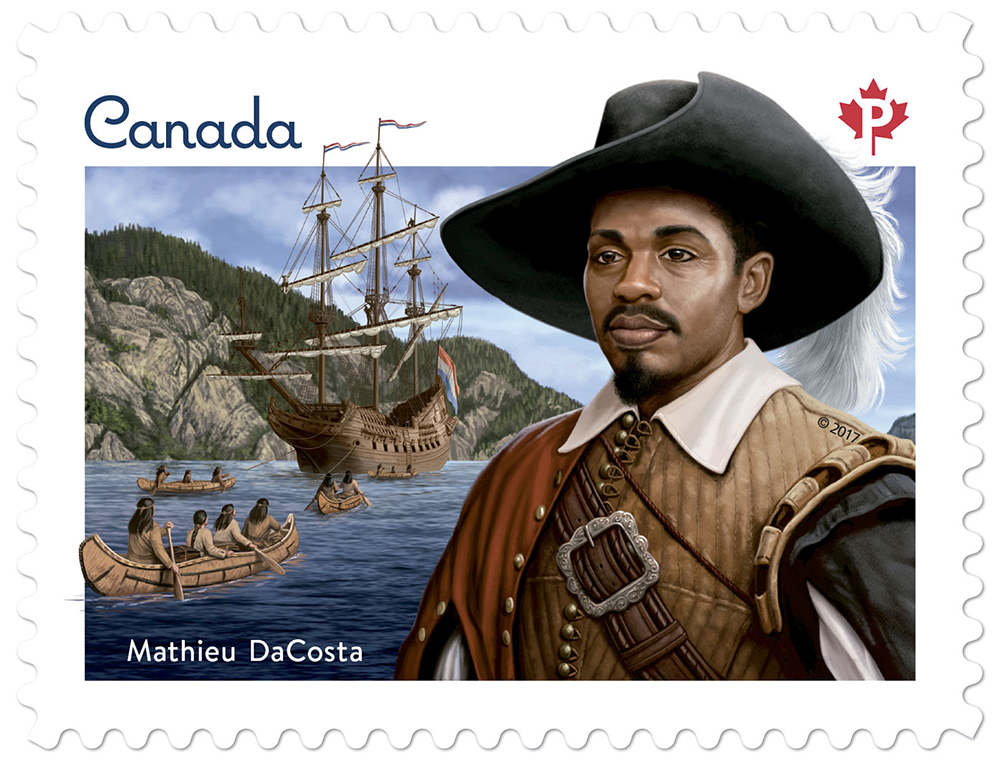
- North America, first years of the 17th century. Mathieu da Costa was the first free black person to reach the current east coast of Canada, according to the Canadian Heritage Institute.

We don't know where and when Da Costa was born and died. We know he was of African origin, he was an interpreter, and he worked for the French colonizers Pierre Dugua de Bots and Samuel de Champlain. It was said that it dominated French, Portuguese, Dutch and Euskera – in particular algonkin-Euskera pidgina – and, of course, that it was the mother tongue, although it was not known anywhere.
According to historians, Africans began to work as interpreters for the Portuguese at the end of the 15th century and a century later, as Europeans were increasingly explored in southern Africa, for the Dutch, French and English. Maybe that's why Da Costa spoke in French, Dutch and Portuguese.
But we don't know how Euskera Algonquin, the pidgin, was able to become an interpreter with the elders of the San Laurendi River. Because it was the main instrument of communication between Europeans and natives. The Basque whalers arrived around the 1520's to the surroundings of Newfoundland and Labrador and in their relations with the inhabitants a pidgina emerged with the words of micmakera, innera and Euskera, which also had some touches of gas, which would later be used by the French colonizers. Da Costa, perhaps, learned Euskera in Europe, or directly pidgina. Or maybe I'll study in North America itself, in active.
The African interpreter returned to Europe in February or March 1607, after a document revealed that the secretary of Mandela of Mons, Pierre Dugua, had come to Amsterdam to seek him. The Dutch reportedly captured several French boats and kidnapped Da Costa. It follows that he had already worked on the Canadian Atlantic coast. In 1608 Da Costa signed a contract with the Norwegian merchant Nicolas de Bauquemare to perform for three years the work of translator of “travel to Canada, Academy and any other place”. We do not know if he re-embarked, but at least he did not complete the whole contract. In December 1609, Mathieu Da Costa was imprisoned in Le Havre for an “act of shame.” And from then on there is no trace of him.